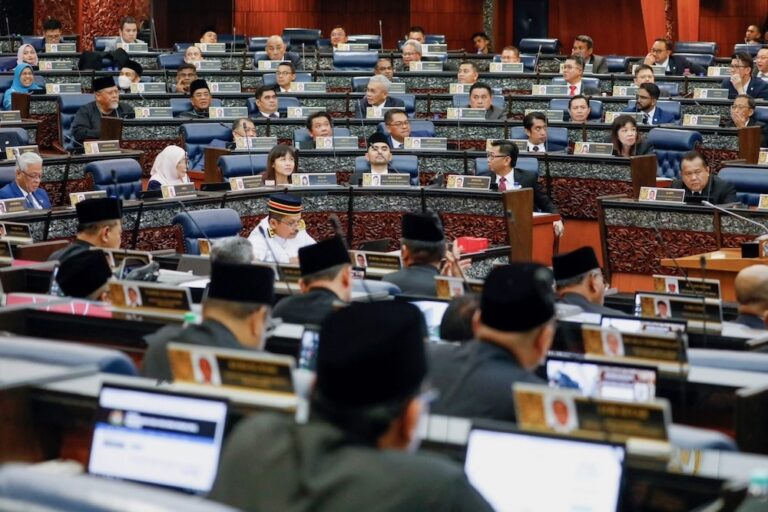(SEAPA/IFEX) – The Malaysian government has suspended a weekend newspaper and its editor for publishing a feature on sex. The “Weekend Mail” and its editor, Mohd Zulkifli Abdul Jalil, have been suspended effective from 6 November 2006, pending an investigation by the Internal Security Ministry. The 4 – 5 November issue of the “Weekend Mail” […]
(SEAPA/IFEX) – The Malaysian government has suspended a weekend newspaper and its editor for publishing a feature on sex.
The “Weekend Mail” and its editor, Mohd Zulkifli Abdul Jalil, have been suspended effective from 6 November 2006, pending an investigation by the Internal Security Ministry.
The 4 – 5 November issue of the “Weekend Mail” had a spread on what Malaysians think about sex, based on interviews with more than 100 people.
In the ensuing days, government ministers, including Deputy Prime Minister Najib Abdul Razak, heaped censure on the newspaper. Najib said he received “endless calls” and text messages complaining about the revelatory feature, which included descriptions of sexual habits.
On 6 November, the newspaper’s parent company, the New Straits Times Press, issued a front-page apology in the “Malay Mail”, the daily edition of the “Weekend Mail”. But it was not enough to prevent the newspaper from being suspended.
Interior Security Ministry Secretary-General Abdul Aziz Mohd Yusof was reported to have said that the articles and photographs in the feature were contrary to the “Eastern values” of Malaysians and that the newspaper had breached sub-section 6 (2) of the Printing Presses and Publications Act 1984 (Act 301).
Communication rights groups the Writers Alliance for Media Independence (WAMI) and the Centre for Independent Journalism (CIJ) have noted with alarm that this was the fourth suspension on the press this year under the act.
In February, the government suspended “Berita Petang”, “Guang Ming Daily” and the “Sarawak Tribune” for publishing allegedly offensive content related to the controversial caricatures of the Prophet Muhammad, which were published in Danish newspaper “Jyllands-Posten” in September 2005 (see IFEX alerts of 24, 22 and 9 February 2006). The first two newspapers were suspended for two weeks, while the “Sarawak Tribune” remains suspended indefinitely.
WAMI challenged the cited clause that the ministry used to justify the suspension, stating that it “stipulated nothing other than the absolute power of the Minister who ‘may at any time revoke or suspend a permit for any period he considers desirable’.”
“While we may not agree with the tabloid’s taste and judgement, we vigorously stand up for their right to publish and the public’s right to critique their content, and against the state’s arbitrary power to dictate our journalism and cultural life,” WAMI said in its 10 November statement.
“Debating and converging on the standards for cultural appropriateness is the duty and the right of every concerned citizen,” it said, pointing out the regulatory power of public opinion that had already prompted an apology from the news group.
Both WAMI and CIJ urged the government to establish a Parliamentary Select Committee on the media to allow public participation in matters pertaining to the media, in keeping with the principle of participatory governance in a democracy.


